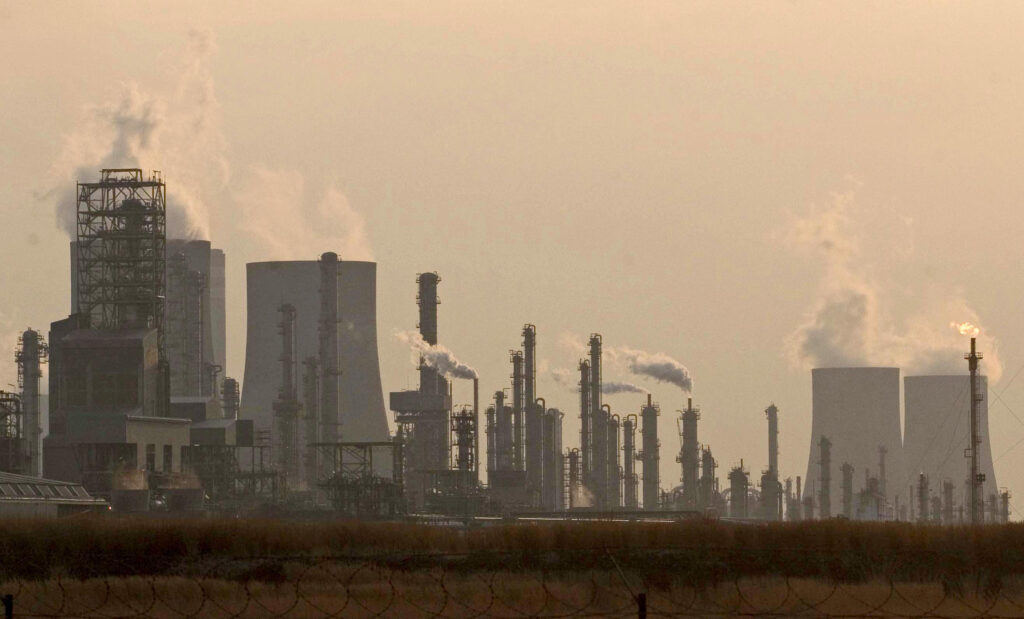Sasolburg, a small town in South Africa, has become a stark symbol of the ongoing struggle between economic development and environmental health. Situated near the country’s oldest coal-to-liquid refinery, the township of Zamdela is heavily impacted by the pollution emanating from Sasol’s facilities. Residents face severe health challenges, with respiratory issues becoming a common concern due to persistent smog and high levels of sulphur dioxide emissions. Mpho Putsoenyane, whose daughter Hlompho was hospitalized at just four months old due to severe respiratory distress, epitomizes the plight of many families living in the area. Despite medical intervention, the recurring exposure to poor air quality has made it increasingly difficult for residents to find relief.
Sasol, South Africa’s largest fossil fuel company, plays a critical role in the country’s economy, employing thousands of individuals and producing a significant portion of the country’s electricity and liquid fuel. However, the reliance on coal as a primary energy source has come under scrutiny, with experts and community members alike calling for stricter environmental regulations. The ongoing reliance on carbon-intensive processes has led to a situation where environmental degradation conflicts with industrial prosperity. Sasol has been granted multiple waivers from emissions standards, allowing its operations to continue with minimal disruption despite significant environmental costs.
The town’s air quality has been ranked among the worst in South Africa, creating a pressing need for sustainable alternatives that balance industrial needs with the health of local communities. Families like the Putsoenyanes face an uncertain future, torn between securing livelihoods provided by Sasol and protecting the well-being of their children. With growing global pressure to combat climate change and reduce emissions, the future of coal-dependent communities remains uncertain. Sasolburg’s predicament reflects the broader challenges faced by similar industrial towns worldwide, where economic development often comes at the expense of environmental health.



